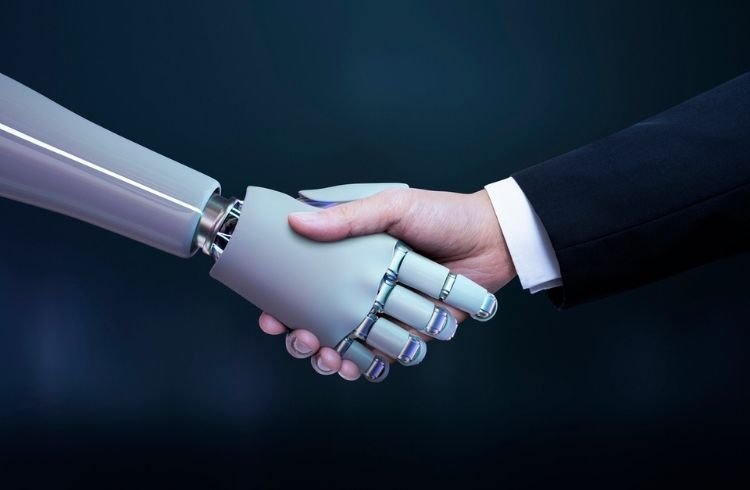Demystifying the benefits and challenges of cognitive computing and artificial intelligence
Table of Contents
Introduction
We have entered an era where state-of-the-art technologies including artificial intelligence (AI) have taken over. Ever since the beginning of computing, AI has been a far-fetched dream for many. However, it is safe to say that today we are much closer to turning that dream into reality than ever before thanks to new and improved cognitive computing models.
Going by the current trends, it shouldn’t come as a surprise to see cognitive computing become an integral part of our lives. Apart from entering our daily lives, cognitive computing and artificial intelligence will also have a huge impact on many industries including banking, retail, education, enterprise technology, and more.
The advantages of cognitive technology are great and in many ways a step beyond the conventional AI systems.
As per David Kenny, General Manager, IBM Watson, “Artificial intelligence can only be as smart as the people teaching it”. However, that may not be entirely true for the current cognitive revolution.
IBM describes cognitive computing as an advanced system that scales, reasons with a purpose, and interacts with humans in a natural form.
Many believe that cognitive computing is the next pathbreaking innovation that is set to redefine the future. Let’s see what’s next and what we can expect from cognitive computing in the near future.
What exactly is cognitive computing?

We want you to use your imagination a bit. Imagine a computer that has a brain that can think and behave like a human being. That seems unrealistic, right?
In a few years down the road, that may eventually turn out to be true.
Think of it. A few years ago, even ideas such as machine learning, automation, and artificial intelligence sounded very strange. However, now that these concepts have evolved and applied across various fields, we have embraced them with open arms.
These technologies provide a set of benefits and help us improve our lives at work and home. Cognitive computing and artificial intelligence have paved the way for facial identification, handwriting recognition, behavioral pattern determination, and more.
The cognitive computing process utilizes a perfect amalgamation of neural networks, machine learning, artificial intelligence, sentiment analysis, contextual awareness, and natural language processing that enables to address day-to-day challenges just how humans do.
How does cognitive computing work?
Cognitive computing enables computers to think and behave like humans. How? It leverages self-learning algorithms that are primarily based on pattern recognition and data mining to provide solutions for a plethora of problems.
Cognitive Computing Consortium says that cognitive computing should be interactive, stateful, contextual, adaptive, and iterative. If any of these attributes are missing, it often prevents a system from attaining cognitive computing.
Who are the key players involved with cognitive computing and artificial intelligence?
Without a doubt, IBM is the pioneer and a leader of cognitive computing. The company has also invested over a billion dollars in big data analytics. Today, it spends around 33% of its R&D in designing and developing cognitive computing technology.
Apart from IBM, Facebook, Google, and Microsoft have expressed immense interest in cognitive computing right from the start. While they have not taken the development route, they leverage cognitive computing for product development.
SEE ALSO:Is environmental sustainability with AI a possibility?
Will cognitive computing transform our lives?

Just like any other technological advancement, cognitive computing is slated to have a huge impact on our daily lives.
One of the main sectors that will predominantly benefit from cognitive computing in healthcare. The technology will enable swift and seamless collation of patient data and make real-time treatment recommendations. Amazing right?
This will also help doctors treat their patients more efficiently by processing large volumes of data to improve their decision-making. At the end of the day, patients will receive the best treatment and do much better as their doctors will have a better understanding of how-to guide and treat them.
Cognitive healthcare is here and it has taken the industry by storm. We believe it will also be a turning point for the healthcare sector.
IBM’s Watson is currently the most talked-about cognitive system that finds applications across different industrial spheres. For example, Watson for Oncology enables physicians to swiftly identify the main disease-related information in a patient’s medical record, assess relevant evidence for certain treatments, and take a look at all treatment options.
Project Debater which is also developed by IBM is the world’s first AI system that can debate humans on very complex topics. Its objective is to help people participate in debates and make purposeful decisions based on facts.
Applications of cognitive computing have tremendous potential to enhance human processes in any field in which large volumes of complex information need to be processed including education, law, finance, and more.
Apprehensions about cognitive computing and artificial intelligence
While cognitive computing can make our lives easier and better in many ways, there are concerns regarding technology. Some say that cognitive computing is a pathway for machines to replace humans in workplaces since it has the capacity to automate mundane and repetitive processes.
The other side of the story is that cognitive computing cannot be successful without human intelligence since humans are entering intelligence into the system.
Critics of the technology have even mentioned that if technology continues to evolve at such a pace, machine domination as seen in movies such as The Terminator and The Matrix is just around the corner. However, we can give those thoughts a bit of rest for now as human intelligence is required to build cognitive systems.
In the current era, new innovations are giving birth to new solutions and these solutions come with their own share of challenges. However, our job is to ensure we find the most efficient way to use new technologies and solutions optimally.
Conclusion
Cognitive computing is a groundbreaking technology that holds the potential to revolutionize multiple sectors, including healthcare, education, law, and more. By allowing computers to think and act like humans, cognitive computing enables systems to learn, adapt, and offer solutions in ways that were once unimaginable. While there are certainly concerns about the potential for automation to replace human jobs, cognitive computing is ultimately designed to enhance human decision-making and not replace human intelligence. With continued advancements, cognitive computing will become an integral part of our daily lives and will reshape industries for the better. The future of cognitive computing and artificial intelligence is exciting, but it is important to approach it with careful consideration of its impacts on society.
What do you think about cognitive computing and artificial intelligence? Will these new-age technologies replace humans? Will we see machine domination in the future?
Leave your comments below. We would love to hear from you.
FAQs
1. What is cognitive computing? Cognitive computing refers to systems that simulate human thought processes in analyzing complex data. It combines machine learning, neural networks, and natural language processing to allow computers to think, learn, and make decisions like humans.
2. How does cognitive computing work? Cognitive computing works by leveraging self-learning algorithms that recognize patterns, mine data, and provide adaptive solutions. It is interactive, contextual, and iterative, allowing it to continuously improve its responses over time.
3. Who are the key players in cognitive computing? IBM is a pioneer in cognitive computing, with other companies like Facebook, Google, and Microsoft also heavily investing in the technology. These companies are leveraging cognitive computing for product development and research.
4. How will cognitive computing transform our lives? Cognitive computing will have a significant impact, especially in fields like healthcare, where it can help doctors make better decisions based on real-time data analysis. It will also play a key role in education, law, and finance by processing large volumes of complex data.
5. What are the concerns about cognitive computing and AI? Concerns include the potential for automation to replace jobs, particularly in repetitive tasks. However, critics argue that cognitive computing cannot function without human intelligence, as humans are responsible for programming the systems.
6. Will AI and cognitive computing replace humans in the future? While AI and cognitive computing can automate tasks and enhance decision-making, they are not designed to replace humans. Instead, they aim to work alongside human intelligence to improve efficiency and outcomes.
7. Can cognitive computing and AI lead to machine domination? The idea of machine domination, as depicted in films like The Terminator, is a far-fetched scenario. Cognitive systems require human input to function and evolve. While AI and cognitive computing will continue to advance, their purpose is to augment human abilities rather than replace them.





